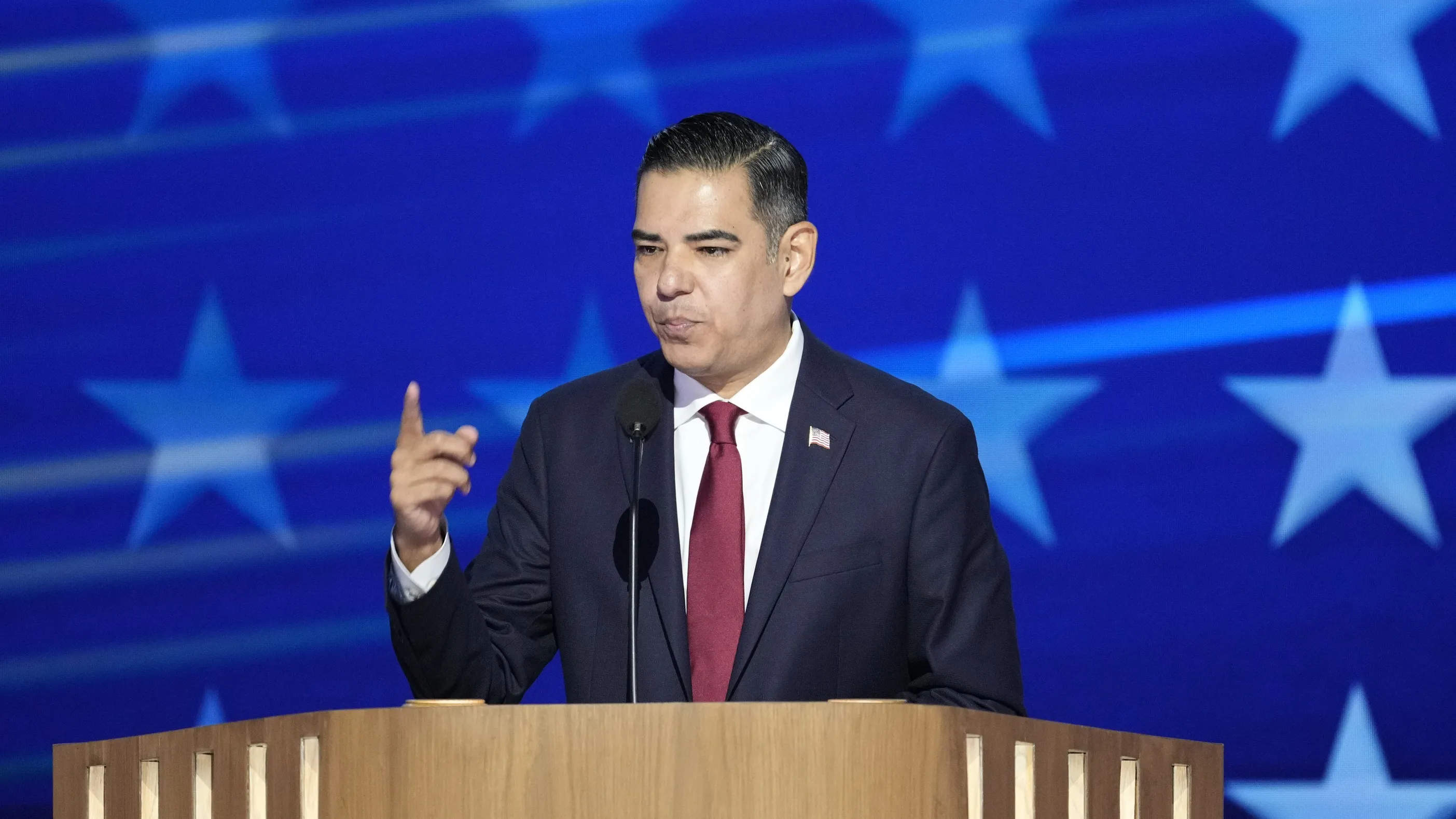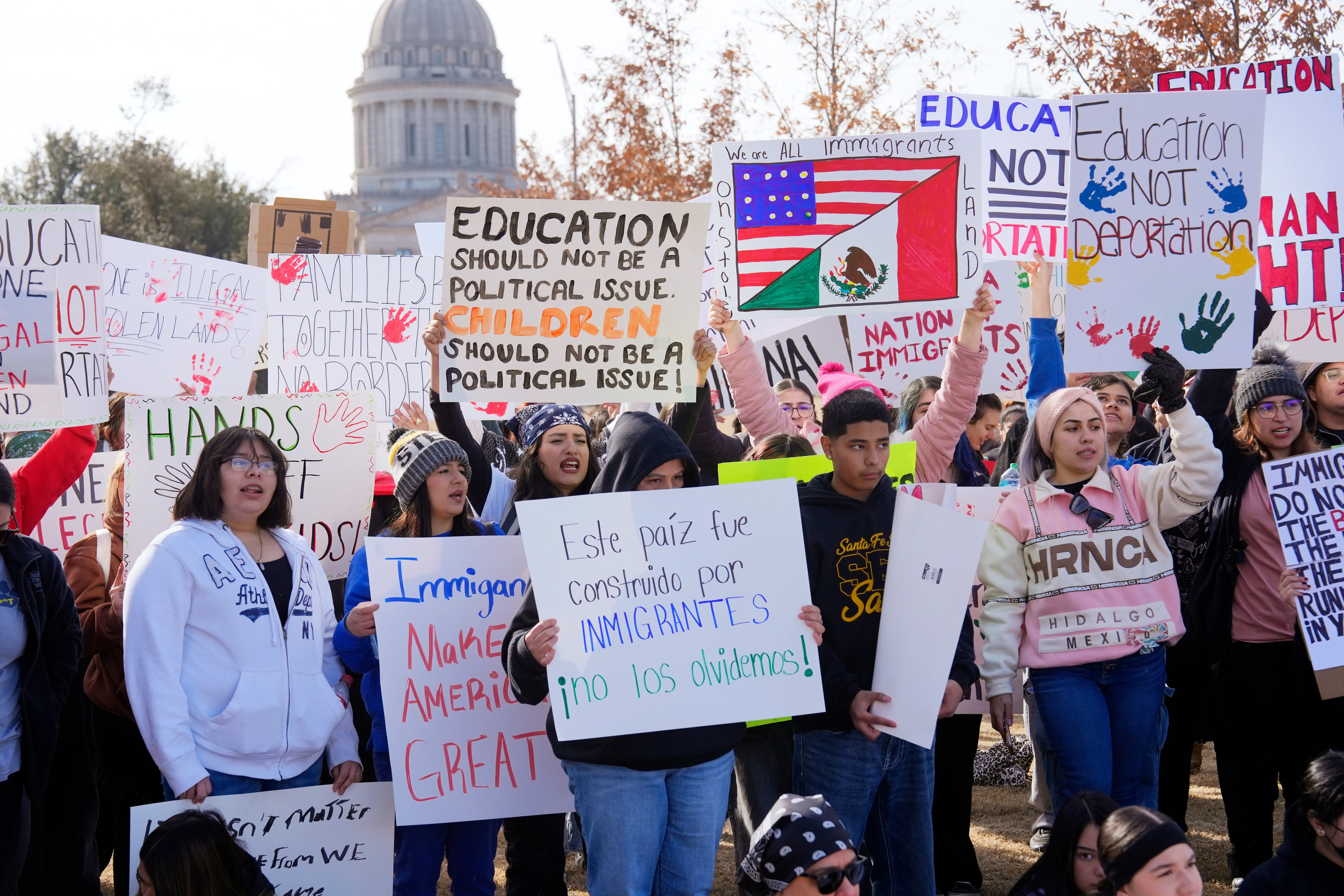The Trump administration’s latest spending bill has escalated the funding for Immigration and Customs Enforcement (ICE) to a staggering $8.3 billion, making it the highest funded law enforcement agency in the United States. This significant increase of $556.8 million from fiscal year 2024 reflects a troubling trend towards aggressive immigration enforcement, further marginalizing communities already under siege. Amid widespread opposition, the implications of this funding expansion are profound and alarming.
Public Sentiment Turns Against ICE
Recent surveys indicate that a majority of Americans believe ICE has overstepped its boundaries in enforcing immigration laws. This growing discontent is echoed by Rep. Robert Garcia, who articulated concerns about the agency’s actions during an appearance on MSNBC’s The Weekend. He highlighted the disproportionate impact that ICE"s activities have on immigrant families and communities, urging for accountability and reform.
Trump’s Spending Bill Targets Immigrant Safety Nets
The new spending bill, characterized by its aggressive stance on immigration, not only bolsters ICE’s budget but also imposes restrictions on safety net programs for immigrants. These measures align with Trump’s broader strategy aimed at mass deportation, which raises grave human rights concerns. As reported by NPR, the bill curtails eligibility for essential programs, effectively punishing immigrants for their legal status.
\n\n
Watch Rep. Robert Garcia"s DNC speech Monday at Chicago convention
ICE’s Expanding Role as a Criminal Investigative Agency
ICE, tasked with enforcing over 400 federal statutes and combating terrorism, increasingly operates beyond its intended scope. According to the DHS, the agency"s resources have been redirected towards aggressive immigration enforcement tactics, often at the expense of community safety and trust. The implications are staggering: families are torn apart, and communities live in fear, undermining the very fabric of societal trust and safety.
Impact on Vulnerable Communities
The expanded funding and aggressive policies create a chilling effect on immigrant communities. Fear of deportation looms large, discouraging individuals from reporting crimes, seeking medical assistance, or engaging with local law enforcement. This erosion of trust is particularly detrimental to public safety, as communities become isolated from vital resources.
Moreover, the funding boost for ICE means more resources for surveillance, detentions, and deportations, which disproportionately affect marginalized populations. Research shows that heightened police presence and aggressive enforcement tactics do not correlate with decreased crime rates, but rather exacerbate community tensions and mistrust.
\n\n
Hundreds protest Ryan Walters, ICE outside OSBE meeting
Calls for Accountability and Reform
As the funding for ICE swells, advocates and lawmakers are calling for a reevaluation of immigration enforcement priorities. The push for reform is not just about reforming ICE but reimagining how the United States approaches immigration. Advocates argue for policies that prioritize human rights, community safety, and the well-being of all residents, regardless of immigration status.
In the face of these challenges, the voices of those directly affected must be amplified. Immigrants and refugees, often depicted as threats, are essential contributors to American society. Their experiences and stories highlight the urgent need for a humane approach to immigration policy that respects human rights and acknowledges the complexities of migration.

![[Video] Federal officers deploy sting balls and flash grenades at Whipple Building](/_next/image?url=%2Fapi%2Fimage%2Fthumbnails%2Fthumbnail-1768340555229-vhfcc-thumbnail.jpg&w=3840&q=75)
![[Video] Crowd-control weapons used in Minneapolis as anti-ICE protesters attack police vehicle](/_next/image?url=%2Fapi%2Fimage%2Fthumbnails%2Fthumbnail-1768336302231-akxf7s-thumbnail.jpg&w=3840&q=75)

![[Video] Protests erupt in Minneapolis after ICE detains teenager, multiple arrests made](/_next/image?url=%2Fapi%2Fimage%2Fthumbnails%2Fthumbnail-1768331835371-z9ylqg-thumbnail.jpg&w=3840&q=75)


![[Video] Gunfire between Iraqi security forces and Sadr militias in Baghdad](/_next/image?url=%2Fapi%2Fimage%2Fthumbnails%2Fthumbnail-1768343508874-4redb-thumbnail.jpg&w=3840&q=75)
